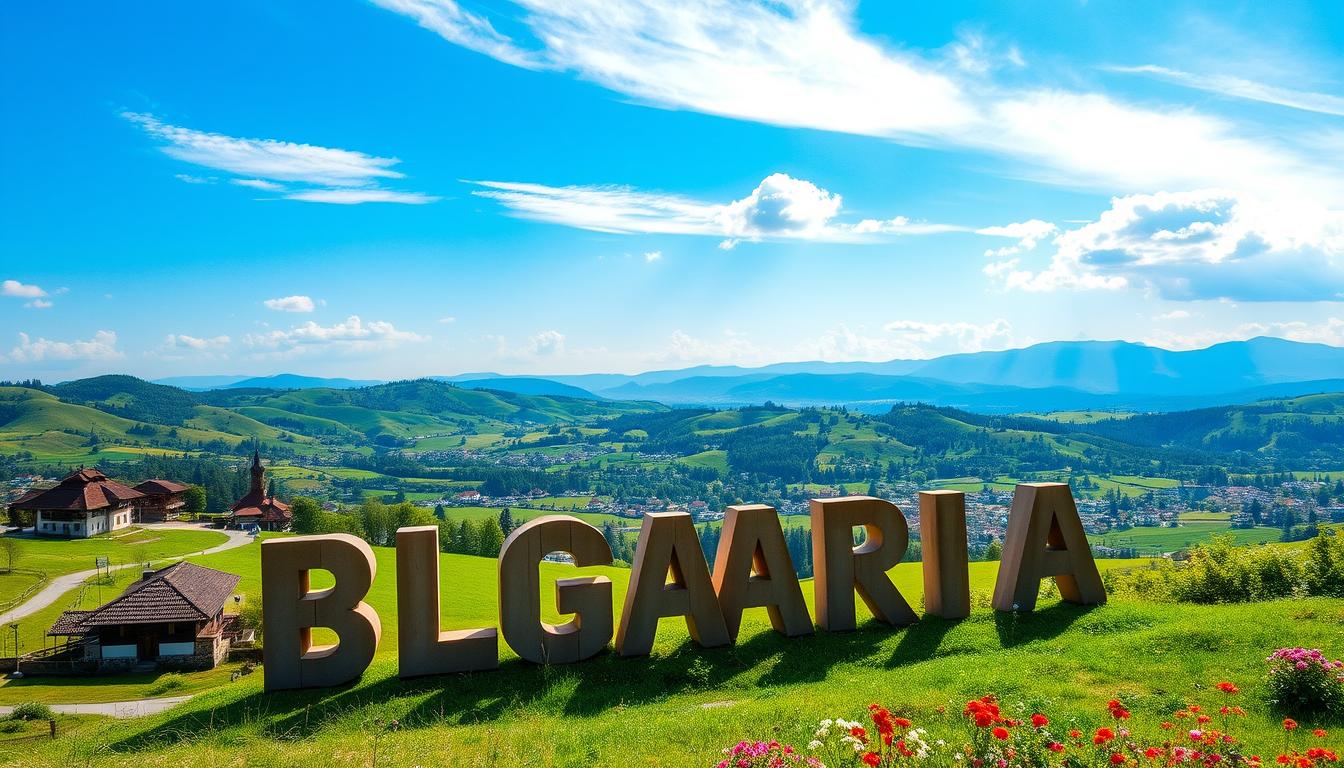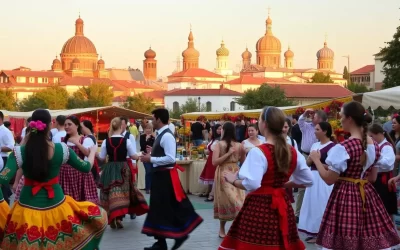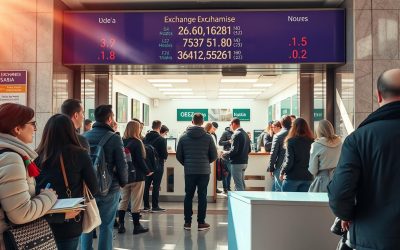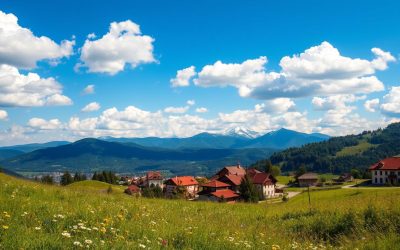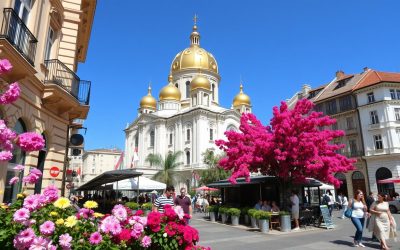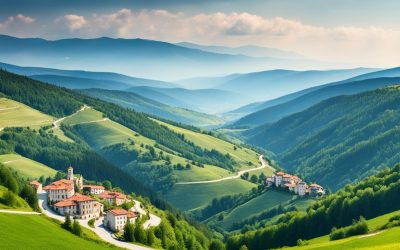Ever wondered about the secrets of the Balkan Peninsula’s languages? Bulgaria offers a journey into the heart of language and culture.
The Bulgarian language is the official tongue of Bulgaria, spoken by 85% of the people. It’s more than just a way to talk; it’s a deep part of Bulgarian identity and culture.
With about 7.4 million people, Bulgaria’s language scene is vibrant and varied. Bulgarian is the main language used in all parts of society, from government to daily chats.
The 2011 Census showed Bulgaria’s language diversity. Out of 6,640,000 who answered the native language question, 5,659,024 chose Bulgarian. This made up 85.20% of the respondents.
Key Takeaways
- Bulgarian is the official language, spoken by 85% of the population
- The language is used across all societal levels
- Over 6.6 million people participated in the language census
- Bulgaria has a population of approximately 7.4 million
- The language reflects rich cultural and historical traditions
Introduction to Bulgaria’s Linguistic Landscape
Bulgaria is a fascinating mix of languages, creating a rich society. Its language journey spans centuries, showing complex history and cultural exchanges.
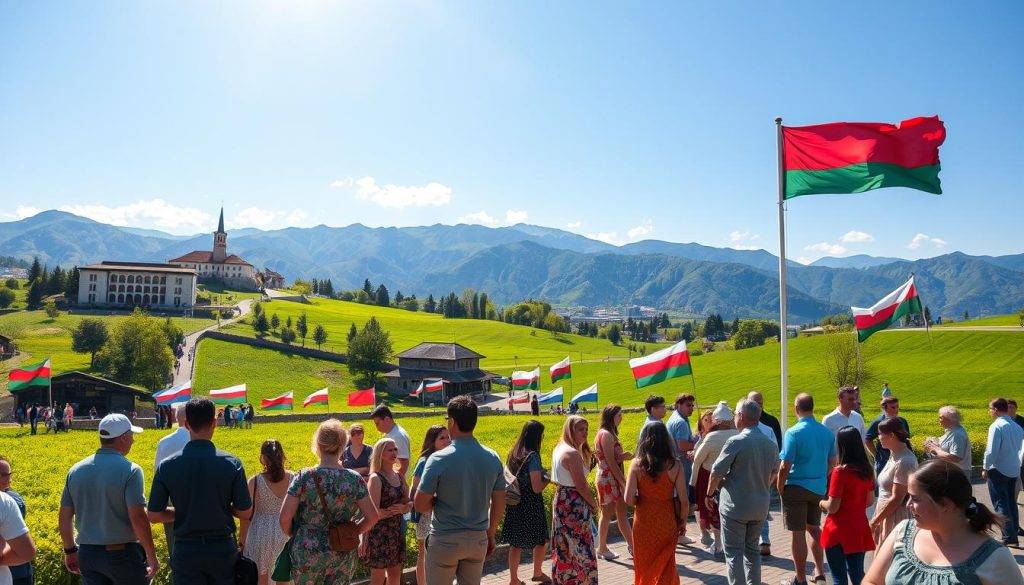
The Bulgarian language is a key part of the nation’s heritage. It’s a South Slavic language, with a history marked by different periods:
- Old Bulgarian (9th–11th centuries)
- Middle Bulgarian (12th–16th centuries)
- Modern Bulgarian (16th century to present)
Historical Language Evolution
Bulgaria’s language has been shaped by cultural exchanges. The Cyrillic script’s introduction in the 9th century was a key moment. Bulgarian words show the influence of Greek, Turkish, and Latin.
- Greek
- Turkish
- Latin
Geographic Language Distribution
Bulgarian is spoken by about 7 million people, across cities and countryside. Linguistic diversity is seen in how communities keep their language while sharing Bulgarian.
Current Language Demographics
“Language is the road map of a culture. It tells you where its people come from and where they are going.” – Rita Mae Brown
Bulgaria’s society is mostly ethnic Bulgarians (around 85%). There are also Turkish and Roma minorities. This mix of languages keeps cultural heritage alive while moving with the times.
Bulgarian as the National Language
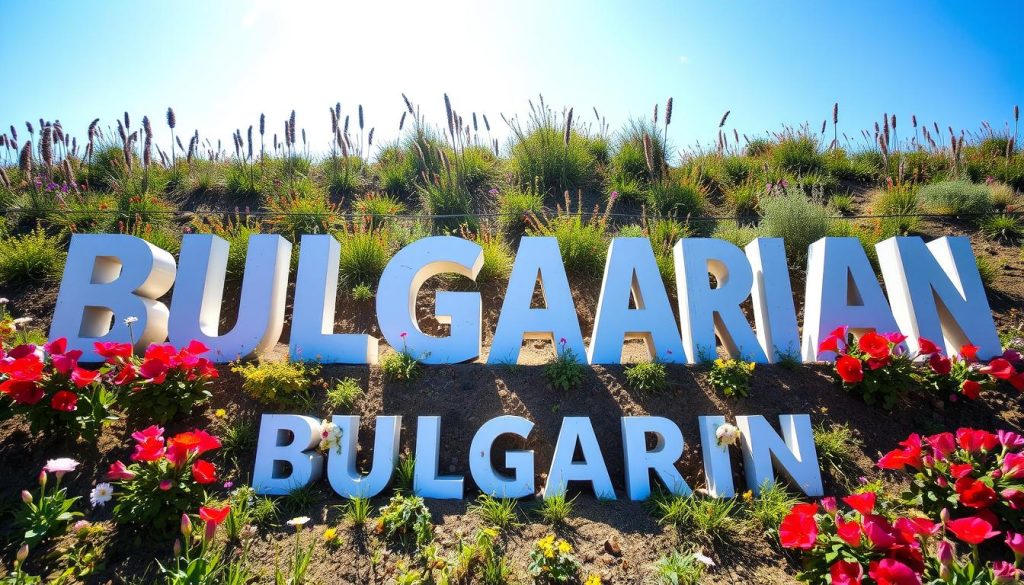
The Bulgarian language is the national pride of Bulgaria. It is deeply rooted in Slavic traditions. With about 7.6 million speakers, it is the heart of Bulgarian culture and communication.
It uses the Cyrillic alphabet, making it unique among European languages.
Bulgarian has many special features that make it interesting:
- A Fusional inflecting language with three grammatical genders
- Complex verb conjugation system
- Rich vocabulary reflecting historical influences
“Language is the roadmap of a culture. It tells you where its people come from and where they are going.” – Rita Mae Brown
Bulgarian is the official language of Bulgaria. It is used in all official settings, like education, media, and government. About 80% of Bulgarians speak it as their first language, showing its importance.
| Bulgarian Language Statistic | Data Point |
|---|---|
| Total Speakers Worldwide | 7.9 million |
| First Language Speakers in Bulgaria | 6 million |
| Percentage of Population Speaking Bulgarian | 80% |
The Bulgarian language keeps changing, yet it stays true to its culture. It is a symbol of national pride for Bulgarians everywhere.
Bulgaria: Official and Widely Spoken Languages
Bulgaria’s language scene is full of variety and culture. Language rules help people talk in cities and towns.
Statistical Overview of Language Usage
Many languages are spoken in Bulgaria. Here’s who speaks what:
- Bulgarian: 6.95 million speakers (primary language)
- Turkish: 695 thousand speakers
- Romani: 69 thousand speakers
- English: 1.74 million speakers
- Russian: 1.60 million speakers
Urban vs Rural Language Distribution
Urban and rural areas have different language use. Cities are more mixed, while countryside sticks to old ways.
| Language | Urban Speakers | Rural Speakers |
|---|---|---|
| Bulgarian | 5.2 million | 1.75 million |
| Turkish | 420,000 | 275,000 |
| Romani | 45,000 | 24,000 |
Language Policies and Regulations
The Bulgarian government has strict language rules. They protect the main language but also minority languages. Regional dialects are recognized, keeping culture alive and communication rich.
“Language is the road map of a culture. It tells you where its people come from and where they are going.” – Rita Mae Brown
Knowing about these language details helps us see Bulgaria’s rich culture and how people talk.
Turkish Language in Bulgarian Society
The Turkish language is very important in Bulgaria’s mix of cultures. It comes from the Ottoman Empire’s time. About 605,802 people speak Turkish, which is 9.12% of Bulgaria’s population.
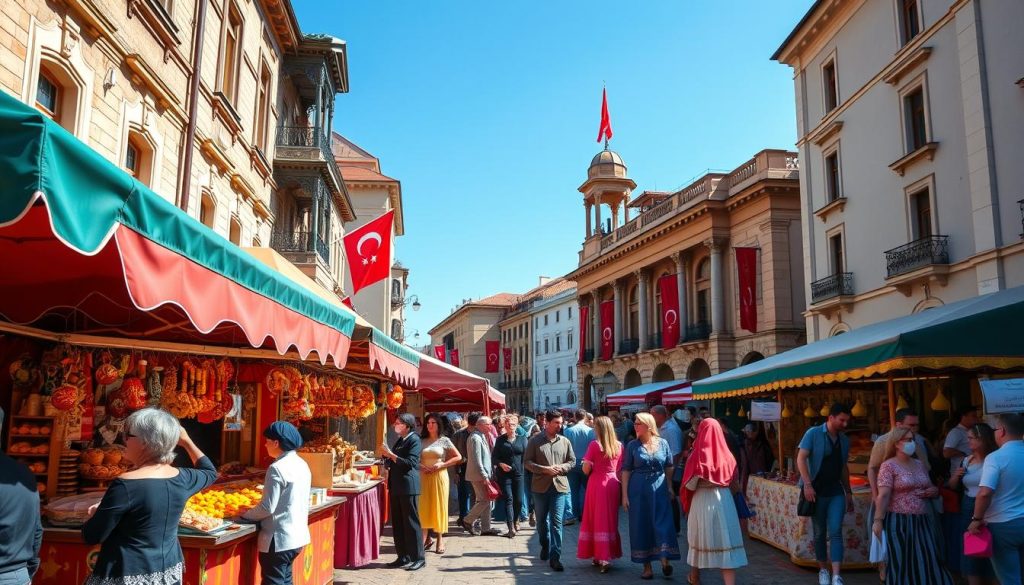
Most Turkish speakers live in certain areas of Bulgaria. These places are in the northeast and southeast. They keep their language and culture alive for many years.
“Language is the roadmap of a culture. It tells you where its people come from and where they are going.” – Rita Mae Brown
- Total Turkish speakers in Bulgaria: 605,802
- Percentage of population: 9.12%
- Primary regions: Northeastern and Southeastern Bulgaria
Even with past difficulties, Turkish language is still strong in Bulgaria. Schools in areas with many Turkish speakers teach both Bulgarian and Turkish. This helps keep the language and culture alive.
| Language | Speakers | Percentage |
|---|---|---|
| Bulgarian | 5,659,024 | 85.2% |
| Turkish | 605,802 | 9.12% |
| Romani | 281,217 | 4.23% |
Learning about Turkish in Bulgaria shows a rich mix of languages. This community adds a lot to Bulgaria’s culture. They are a key part of Bulgaria’s society.
The Romani Language Communities
Bulgaria is home to a lively and varied Romani language community. This group makes up about 4.2% of the population. They add a lot to the country’s cultural and linguistic diversity.
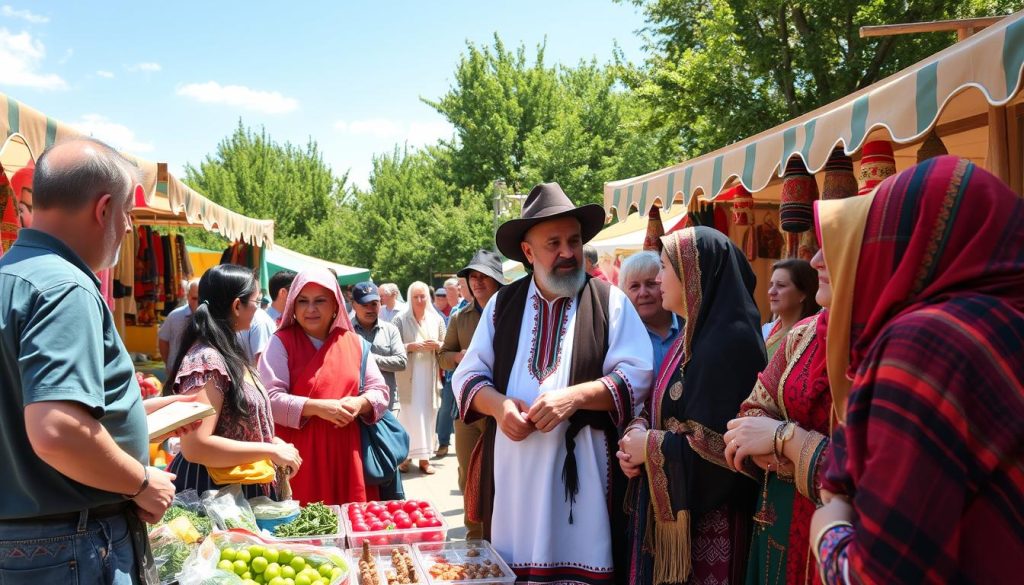
The Romani language comes from Northern India. It shows a lot of complexity and has different forms in different places.
Dialects and Variations of Romani
In Bulgaria, there are many Romani dialects. Each one has its own special features:
- Vlax Romani: About 500,000 speakers
- Balkan Romani: Around 600,000 speakers
- Sinte Romani: Roughly 300,000 speakers
Sociolinguistic Aspects
The Romani language is more than just a way to talk. It shows who the Bulgarian Romani people are, keeps their culture alive, and connects them to their past.
“Language is the roadmap of a culture. It tells you where its people come from and where they are going.” – Rita Mae Brown
Educational Challenges and Opportunities
Teaching the Romani language is hard. There aren’t enough books and lessons for schools.
| Language Status | Details |
|---|---|
| UNESCO Classification | Vulnerable Language |
| European Union Recognition | Most spoken minority language post-2007 |
| Global Speakers | Estimated 10 million |
But, there are new efforts to keep the Romani language alive. These include special education programs and working with the community.
Foreign Language Proficiency Trends
Bulgaria is a land of many languages, showing a unique picture of language skills. This country, known for its rich culture and global ties, has interesting ways of learning languages.
Recent Eurobarometer surveys give us a glimpse into Bulgaria’s language skills:
- English is the most known foreign language, with 29% of Bulgarians saying they can use it well.
- Russian comes next, with 14% saying they can speak it.
- German is third, with 5% saying they can speak it.
The past has shaped Bulgaria’s language trends. In the Soviet days, Russian was the main language taught in schools. Now, English is the top language, thanks to the world getting smaller and business growing globally.
“Language skills are critical in today’s interconnected world” – Bulgarian Education Expert
Learning about Bulgaria’s language scene can be helped by looking at this data:
| Language | Proficiency Percentage | Primary Usage Context |
|---|---|---|
| English | 29% | Business, Technology, International Communication |
| Russian | 14% | Historical Ties, Regional Communication |
| German | 5% | Technical Education, Economic Partnerships |
The young people in Bulgaria really want to learn new languages. They see how important it is for their jobs and personal growth. Almost all high school students learn at least one foreign language, showing Bulgaria’s commitment to being multilingual.
Language Education System
Bulgaria is dedicated to making its society multilingual. It starts teaching languages early, from primary school to adult classes. This prepares students for a world where everyone speaks different languages.
Primary and Secondary Language Education
In Bulgarian schools, language learning is a big deal. Kids start learning languages early. They focus on:
- Bulgarian as the main language
- English as the most chosen foreign language
- Other foreign languages as options
Higher Education Language Programs
Universities in Bulgaria offer many language learning chances. They support learning multiple languages through:
- Language degree programs
- International exchange programs
- Advanced language certifications
Adult Language Learning Opportunities
Adults in Bulgaria have many ways to learn new languages. There are programs to improve work and personal skills.
“Language learning is a gateway to understanding different cultures and expanding professional opportunities.” – Bulgarian Education Ministry
| Language | Popularity for Children’s Future |
|---|---|
| English | 81% |
| German | 20% |
| Russian | 7% |
| Spanish | 7% |
Bulgaria’s language education system is smart. It prepares people for a world where many languages are spoken. It offers flexible and wide-ranging learning chances.
Minority Language Rights and Protection
Bulgaria is a leader in protecting language diversity. It has strong language policies that protect minority languages. The country has also signed important international agreements to show its commitment to language rights.
Key international frameworks protecting minority languages include:
- European Charter for Regional or Minority Languages
- Framework Convention for the Protection of National Minorities
- Article 21 of the EU Charter of Fundamental Rights
Understanding minority language rights in Bulgaria means looking at legal protections and how they work. The country tries to keep linguistic heritage alive while also helping people integrate.
“Language is the roadmap of a culture. It tells you where its people come from and where they are going.” – Rita Mae Brown
Specific ways Bulgaria protects minority languages include:
- Educational support for minority language instruction
- Media representation
- Public service accessibility
- Cultural preservation programs
Even with good policies, Bulgaria still faces challenges in fully protecting minority language rights. There are ongoing debates about how to keep linguistic diversity alive. This ensures smaller language groups can keep their culture while also joining in with the wider society.
The European Union wants to support many languages. It hopes every citizen will know two languages besides their own by 2025. This goal affects how Bulgaria protects minority languages.
Conclusion
Bulgaria is a great example of how different languages come together. It has a mix of Bulgarian, Turkish, and Romani languages. This shows its rich cultural background.
Exploring Bulgaria’s languages takes you on a journey of keeping and changing cultures. Most people, 85.2%, speak Bulgarian at home. But, cities are where languages really mix, with 73.6% of people living there.
Bulgaria balances its national identity with welcoming different cultures. It works hard to teach languages, protect minority rights, and keep languages alive. This shows Bulgaria values its cultural heritage.
By 2030, Bulgaria will have about 6,564,000 people. It will still be a place where languages and cultures blend. Bulgaria’s story with languages is not just about talking. It’s about celebrating its history and culture.
The above is subject to change.
Check back often to TRAVEL.COM for the latest travel tips and deals.
Here are some Tours & Sightseeing suggestions that might pique your interests!
